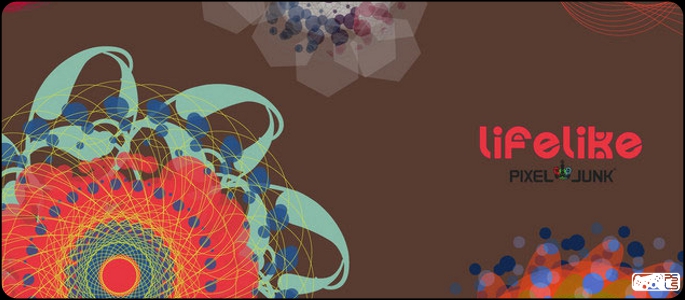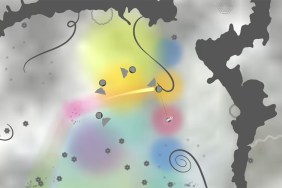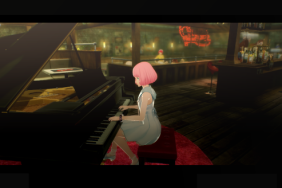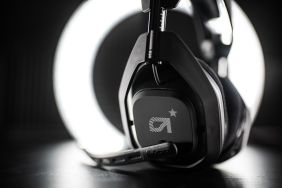Q-Games knows how to make great PlayStation Network games. That much is clear. Their PixelJunk series of games are among the best the PSN has to offer, and have amassed quite the fan-base in the PlayStation 3’s short life. But this new game… isn’t a game at all.
At least that’s what Dylan Cuthbert, President of Q-Games told us before he started his presentation on PixelJunk lifelike. “Don’t expect much gameplay”, he said. And he meant it.
lifelike isn’t a game. There’s nothing quite like it. It’s a music conducting, visual trip; all composed using the PlayStation Move. It appears simple: Use the PlayStation Move to cue beats, tones and sound effects. Then use it more—even the slightest twists of the wrist–to alter these sounds, putting it all together to produce a musical performance.
It’s quite difficult to explain. It was even for Cuthbert, who brought in co-designer, musician Baiyon, to “perform” the demonstration (watching Baiyon was an experience of its own). In just seconds, Baiyon had produced an industrial-techno sounding “song”, that pulsated a bacteria-esque on-screen kaleidoscope to the beat. Depending on what buttons were pressed, or how the Move controller was manipulated, it would alter what sounds and effects were being brought in. Moving the Move in 3D space would further change the tones, truly making you the master of your own experience.
It’s designed with simplicity in mind. Just pick it up and get right into it. The movements are very natural, and in no time you should be able to create a masterpiece with the once blank “canvas”. And when you create such a masterpiece, you want to show it off. Q-Games has you covered by broadcasting performance on the PSN. Even better, they claim it’s like Twitter, where you don’t have to invite people to your performance, they can just drop in and drop out – anyone on your friends list, anyone on the PlayStation Network.
There’s even support for 2 players with a Move controller each, which we were told adds to the sound production by creating “interesting effects” like sound collisions.
The visuals and the “lifelike” name come from Baiyon’s concept of musical “amoebas” and the gameplay (if you can call it that) is inspired from Baiyon’s own live-performances back in his native Kyoto, Japan.
When I first saw it (I’m quoting my own notes here), I thought “WTF? I have no idea what to call this”, but quickly turned into “ah, now that’s amazing, innovative, and just plain awesome”. It’s still very early to tell, especially since Q-Games is targeting a release before the end of they year (they hope), but it looks like PlayStation Move may have found its killer app on the form of something that’s not quite a game, and definitely not quite like anything you’ve seen before.








